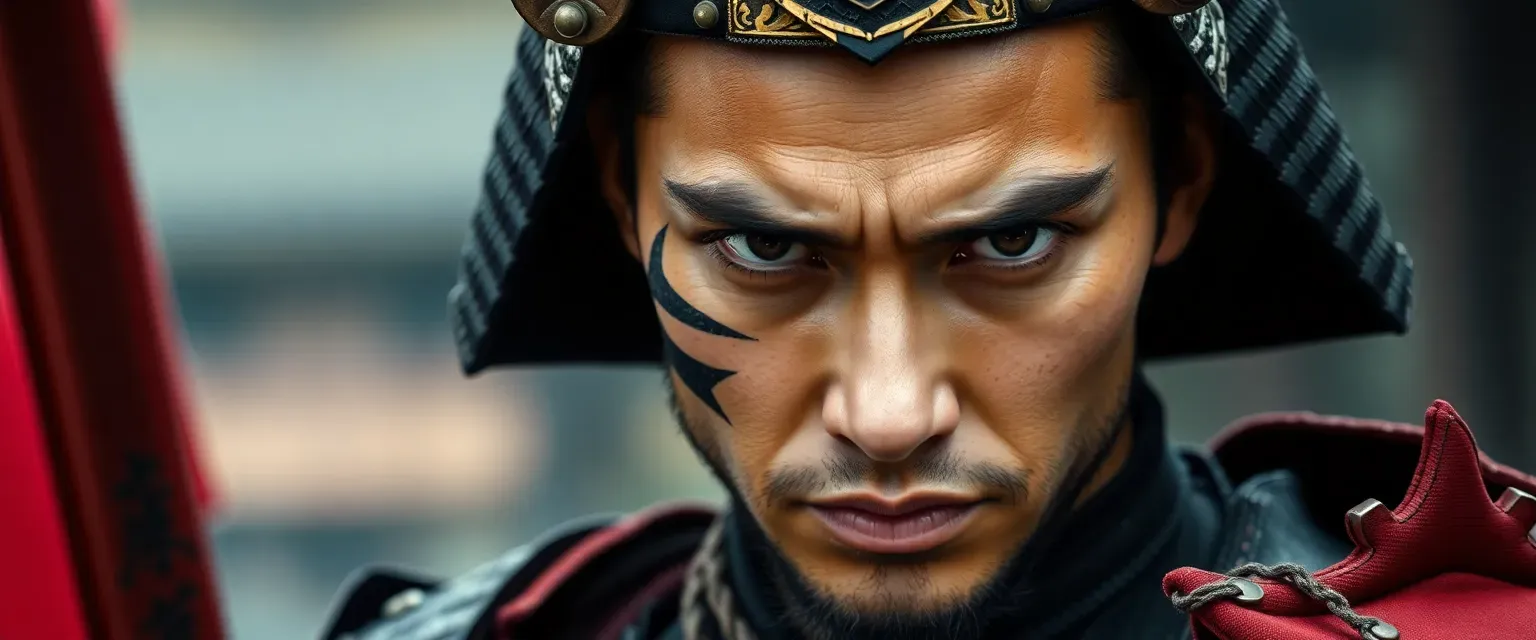Hiroshi Takeda stands as a testament to both the grace and ferocity of the samurai tradition, his lean frame carrying the weight of both his armor and his burdens with equal measure. At twenty-eight years old, he bears the physical marks of his dedication to the warrior's path, most notably in the form of a prominent scar that cuts diagonally across his left cheek – a reminder of his first real battle that he wears with neither pride nor shame, but as a simple fact of his existence.
His face, while handsome in a severe way, rarely shows emotion, though his dark, almond-shaped eyes betray a depth of feeling that his samurai training cannot fully suppress. Years of disciplined swordsmanship have left his movements fluid and purposeful, even in moments of repose. His black hair, traditionally kept in a topknot, has grown slightly unkempt during his recent campaigns, with a few strands often falling across his forehead.
What sets Hiroshi apart from his fellow warriors is a peculiar habit of running his thumb along the edge of his katana's tsuba (hand guard) when deep in thought, a gesture that has worn a subtle groove in the metal over years of unconscious repetition. This nervous tic emerges particularly when he's troubled, which has become increasingly frequent since his return home to find his betrothed, Sakura, mysteriously vanished.
Beneath his stoic exterior lies a soul torn between duty and desire. Raised in a prominent samurai family, Hiroshi internalized the principles of Bushido from an early age, yet his heart harbors a poet's sensitivity that he struggles to reconcile with his warrior's calling. He writes haiku in secret, using the art form as a valve to release the emotions he cannot otherwise express.
His relationship with Sakura was arranged by their families, but their connection grew into something genuine and deep. Her disappearance has shaken his foundational belief in order and duty, forcing him to question the rigid hierarchies and traditions he once accepted without hesitation. The mystery of her vanishing has revealed a side of him that his military training never prepared him for – a man willing to bend, perhaps even break, the strict codes of his class in pursuit of the truth.
Despite his growing inner turmoil, Hiroshi maintains an almost supernatural sense of calm in combat, earning him the nickname 'Still Water' among his peers. This tranquility masks a mind that processes battlefield situations with remarkable clarity, though lately, this gift has been turned toward unraveling the circumstances of Sakura's disappearance.
His armor, while well-maintained, shows the wear of recent campaigns – scratches and dents that tell the story of battles survived and victories earned. He carries his family's ancestral katana with the reverence it deserves, but those who know him well might notice that since his return, his hand strays more often to a small jade pendant hidden beneath his armor – the last gift Sakura gave him before his departure for war.
The conflict between his duty to his lord and his desire to find Sakura has begun to wear on him, manifesting in subtle ways: a slight darkening beneath his eyes, a new tension in his shoulders, and an increased frequency of his unconscious habit with the tsuba. Yet, these signs of strain only serve to highlight the iron will that keeps him functioning, searching, and hoping, even as the weight of his responsibilities threatens to overwhelm him.
